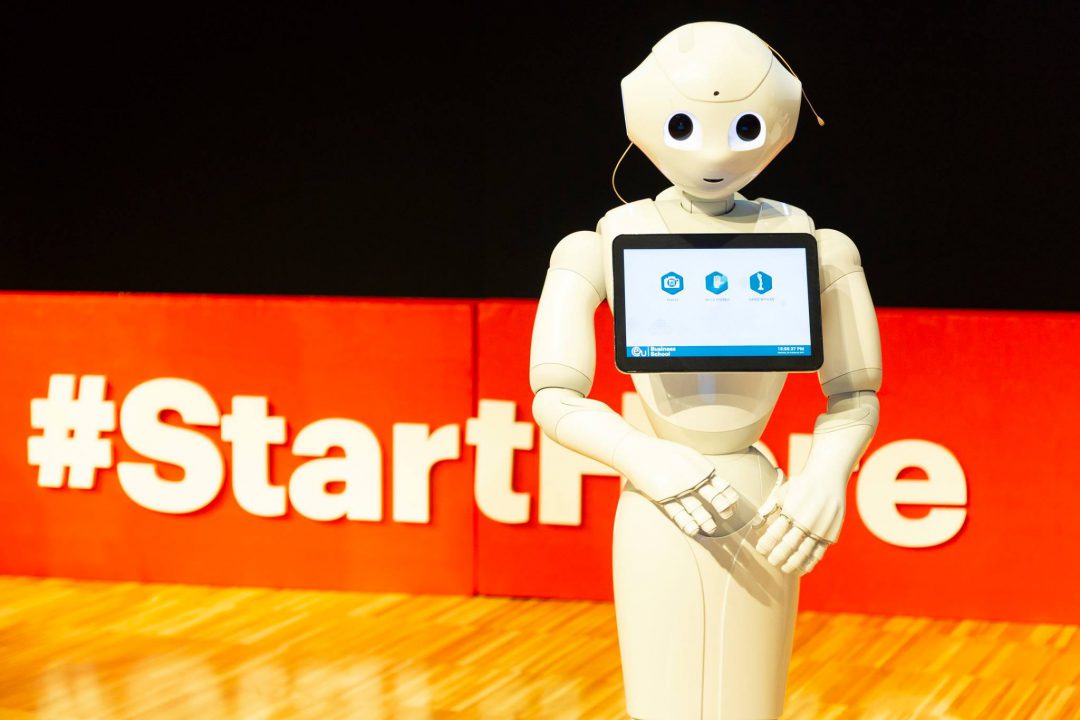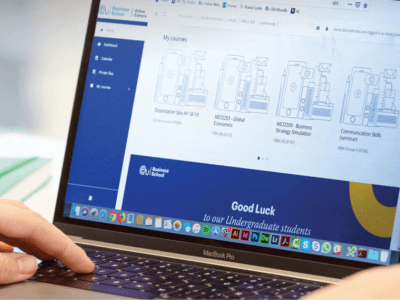5 Benefits of AI for Business
Artificial intelligence (AI) is one of the most promising new technologies shaping 2020. Here we take a closer look at how AI is disrupting business today, and where it stands to make the most significant impact.
Before we explore how AI will benefit business, let’s take a look at what artificial intelligence actually is.
AI is the processing of data to find patterns and anomalies. AI technology obtains and manages vast amounts of data to extract information that will enhance or transform operations efficiently and effectively. Technologies that leverage AI can analyze and model human behavior by identifying and simulating behavioral patterns. Over time, it can anticipate needs and make rational decisions based on its learnings and observations.
AI differs from business intelligence technology which analyzes data but leaves decision-making to an actual person. AI is (almost always) autonomous, without human intervention.
So, how will AI impact business operations?
1. Improve Customer Communications and Save Costs
Chat will surpass other customer service platforms by 2021. AI-driven chatbots allow companies to provide 24/7-customer-support by automating customer communications, making the experience even more personal. The latest improvements in natural language processing allow “bots” to pick up conversation nuances and better mimic human speech.
According to a study by AMA, chat improves the customer journey, which leads to an increase in customer satisfaction and revenue.
Banks that have recently implemented chatbots have seen a reduction in salary and benefit costs while improving back-office efficiency. For small businesses that don’t have the budget or the human resources to have a dedicated customer service team, AI-enabled chat can fill customer service gaps.

2. Strengthen Brand Loyalty with Personalization
Over 60% of consumers expect a personalized experience. The challenge for most businesses, especially small ones, is that personalization takes time, effort and money. To deliver a customized experience, companies need to map out individual consumer journeys and predict the moments and offers that will increase engagement and drive sales. Personalization requires the ability to anticipate the needs of every customer. This is a tremendous task – one that that artificial intelligence can fulfill.
Brands are using data, for example from previous purchases and social media activity, to predict the type of products consumers will likely purchase. These insights allow the company to deliver tailored content and messages to customers. Artificial intelligence can fully automate this process, identifying decision-making patterns and creating personas based on these, then driving content that AI has learnt is most successful for each persona. Studies show that segmenting and personalizing customer communications using AI increases click-through rates by an average of 14%.
This is just the start of how automation technology and AI can improve a business’ marketing strategy.
3. Streamline the Hiring Process
Another area where artificial intelligence can increase efficiency is in the recruiting process. Through automated screening calls and by automating the analysis of candidate applications, for example, AI speeds up the candidate review process. AI also helps to eliminate human bias from preliminary screenings which is good news for workplace diversity.
In highly competitive fields with small talent pools, this technology reduces the time to fill open roles, analyzing candidate applications at a faster rate than humans can. When PepsiCo needed to fill 250 jobs in two months, they used Robot Vera to conduct first-round interviews. Vera was able to interview 1,500 candidates in nine hours. It would have taken human staff nine weeks to interview the same number.
AI gives companies a competitive edge in the recruitment process by increasing cost-efficiency when securing talent. A study by the Talent Board found that when companies create a positive candidate hiring experience – for example by reducing the overall time spent in the recruitment process – they cut their per-hire costs.
4. Increase Forecasting Accuracy
Perhaps the most substantial business benefit of AI is the reduction in human error. One time-consuming process prone to human error but essential to business success is forecasting cash flow. AI technology can help a business automate objective forecasting without manual intervention. This gives companies greater visibility of their future finances, empowering them to make better decisions and take actions to achieve goals.
5. AI Unlocks Opportunities
According to a recent McKinsey study, companies that use AI will increase cash flow by over 120% by 2030. It’s already clear that AI will add value to customer service, help to generate new revenue and reduce costs. Further applications for the technology to boost business seem to be endless, limited only by human imagination.
Whether you are exploring a career in management, design, human resources or marketing, to take advantage of the innovation that AI makes possible, you will need to start with a strong foundation in business fundamentals. EU Business School’s programs connect theory with practice, teaching students the skills to apply emerging technologies to continuously improve how business is done. With a broad range of courses available across four European campuses and online, there are plenty of options to find the perfect next step in your career.










